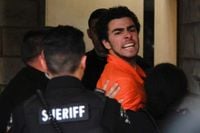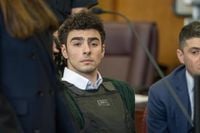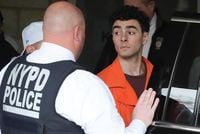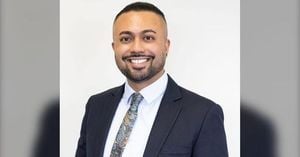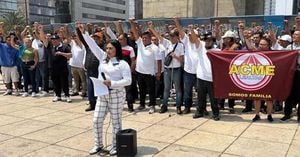U.S. prosecutors have requested the death penalty for Luigi Mangione, the 26-year-old man accused of murdering Brian Thompson, the CEO of UnitedHealthcare. On April 1, 2025, U.S. Attorney General Pam Bondi announced that she had instructed federal prosecutors to pursue the death penalty for what she described as "premeditated and cold-blooded murder." Thompson was shot dead outside a hotel in New York City on December 4, 2024, as he was attending an investor conference.
Authorities apprehended Mangione weeks later in Pennsylvania following a national manhunt. He was identified by a McDonald's employee while carrying an ID under the name Mark Rosario. Police found him with a 9-millimeter pistol, the same type of weapon used to kill Thompson, and a handwritten note stating, "these parasites deserve what they got." Bondi characterized the murder as an act of political violence, adding that the public nature of the crime posed a serious risk to others.
Thompson, 50, was reportedly targeted by Mangione due to his anger towards U.S. health insurance companies. In addition to the federal charges, Mangione faces 11 state criminal charges in New York, including first-degree murder and terrorism-related offenses. If convicted on all counts, he could face life imprisonment without the possibility of parole.
Federal prosecutors have also charged Mangione with using a firearm to commit murder and interstate stalking resulting in death, making him eligible for the death penalty. He has not yet made a statement regarding these accusations. The federal and state cases are expected to proceed simultaneously.
The case has sparked significant public interest, with many individuals expressing support for Mangione. Reports indicate that hundreds of thousands have justified or celebrated Thompson's murder, particularly on social media platforms like TikTok and Instagram. Joel Finkelstein, a researcher and founder of the Network Contagion Research Institute, noted a 400% increase in hashtags like "destroy the rich" in reaction to the incident.
Finkelstein discussed the phenomenon on the BBC podcast "The Mangione Trial," stating, "There were groups mass-producing content, creating memes, merchandise, and AI-generated videos, objectifying him sexually. The activity and support for the homicide appear to be incredibly widespread."
Experts attribute this mobilization to widespread frustration with the health insurance industry, where many consumers complain about bureaucratic hurdles and denied coverage. Gladys Sharpp, a resident of Long Island, expressed this sentiment, saying, "We're rebelling, and most of the world is too. We're tired of insurance companies being corrupt and denying hundreds of coverages to people."
Another factor contributing to the case's notoriety is the growing discontent with the economic and political power of certain groups. Finkelstein noted that many millennials and young people feel a sense of hopelessness about their future, stating, "There's a feeling that, as a millennial or young person, 'I have no future,' 'we won't be able to fix things.' This sense of helplessness seems to be part of Luigi's motivation, but also part of the fascination for his supporters."
Additionally, some analysts point to Mangione's appearance as a factor in his popularity. Jordan Dunbar, host of the BBC podcast, remarked, "There is a notion of beauty privilege. He is a good-looking guy, and it seems that has further amplified support for him."
Critics argue that the public sentiment surrounding the case could benefit the defendant, potentially influencing jurors to acquit Mangione despite strong evidence against him. A crowdfunding campaign initiated by Mangione to cover his legal defense has already raised hundreds of thousands of dollars.
Details about Mangione's background reveal that he comes from an influential family in the Baltimore area, having amassed wealth in real estate. He graduated from the prestigious University of Pennsylvania and later lived in a surfing community in Hawaii, returning with chronic back pain. It remains unclear whether Mangione had unresolved disputes with health insurers.
Evidence found in his backpack included a manifesto labeling UnitedHealthcare as "too powerful" and accusing the company of profiting off the population. The Mangione family has remained silent regarding the case.
As the trial approaches, it is set to occur later in 2025, drawing continued attention from both the media and the public. The implications of the case extend beyond Mangione himself, reflecting broader societal frustrations with health care and economic inequality.
Bondi's recent decision to pursue the death penalty aligns with a tougher stance against crime under the Trump administration, which aims to enhance public safety and deter violent crime. Despite the abolition of the death penalty in New York for state charges, the federal charges against Mangione provide a pathway for the maximum sentence.
As the legal proceedings unfold, the case of Luigi Mangione will likely remain a focal point of discussion regarding the intersection of crime, politics, and public sentiment in contemporary America.


